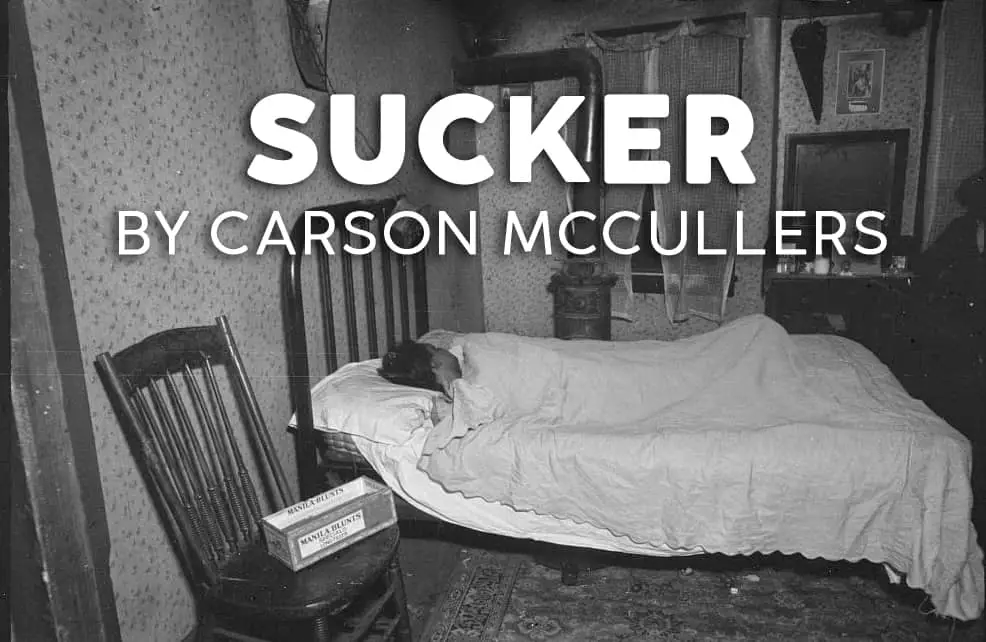-
How To Write Like Carson McCullers
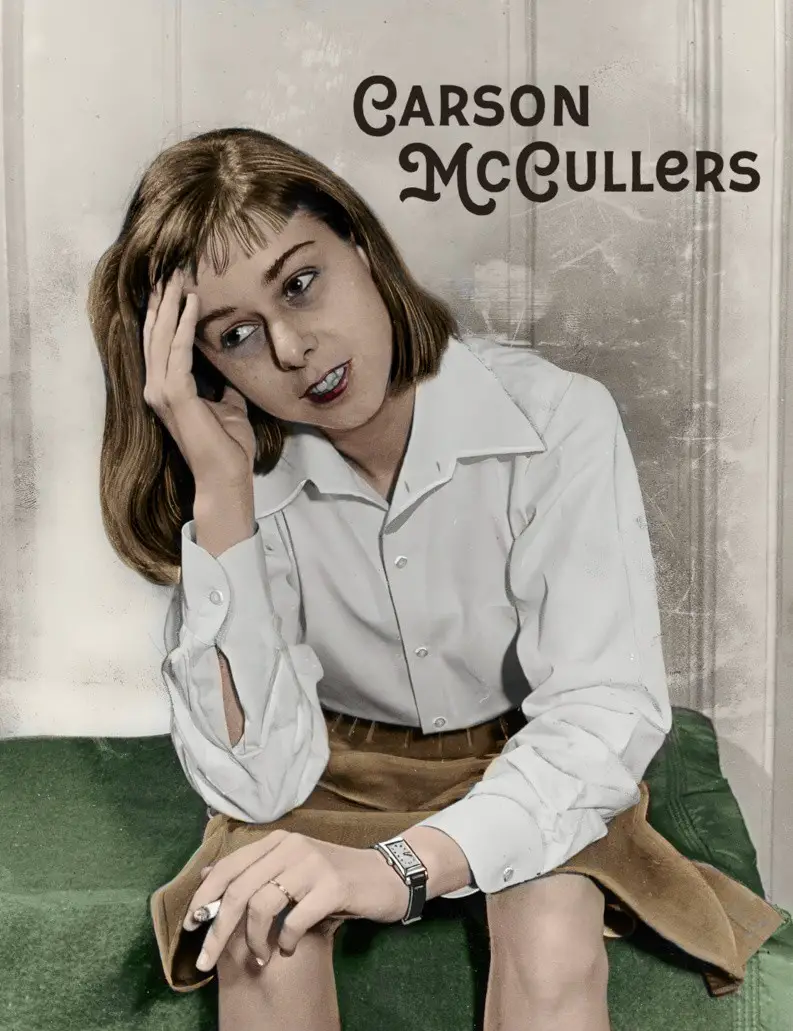
If you want to start with the best of Carson McCullers, focus on the stories she wrote in the 1930s and 40s. Ill-health and issues related to alcoholism made it difficult for McCullers to keep producing the same high quality of life up until her death. The most prevalent theme in the novels–rejection or unrequited…
-
The Haunted Boy Short Story by Carson McCullers Analysis
“The Haunted Boy” is a 1955 short story by American writer Carson McCullers, focusing on the soft emotions of boys.
-
The Jockey by Carson McCullers Short Story Analysis
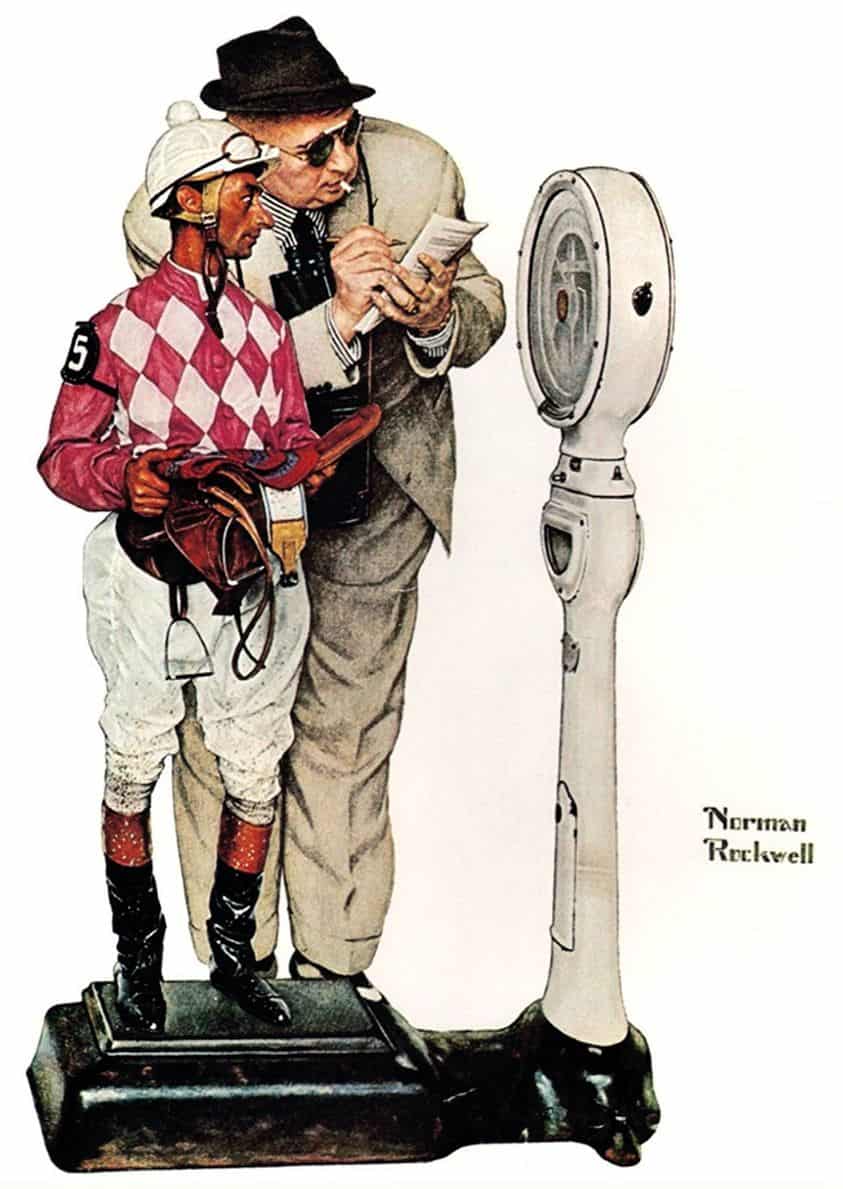
American writer Carson McCullers published “The Jockey” in 1941, when she was just 24, which seems young, until you realise she’d published “Sucker” at the age of 17 and a novel at age 22. McCullers belonged to a generation who spent their youth living through world war. Surely that affords a measure of maturity. She…
-
Court In The West Eighties by Carson McCullers Analysis

Have you ever lived in close quarters with strangers? Perhaps you went out of your way not to know these people, but in the name of etiquette rather than aloofness. There’s something discomfiting about living in a stranger’s pocket. Like commuters on a packed train, we avoid each other’s gaze. Failure to know our neighbours…
-
Something I’ve Been Meaning To Tell You by Alice Munro Short Story Analysis
“Something I’ve Been Meaning To Tell You is a short story by Alice Munro, and opens Munro’s 1974 same-named collection. Two elderly sisters live together in a small tourist town somewhere near a lake in Ontario.
-
Symbols of Freedom in Literature
Do not allow yourselves to be deluded by the abstract word ‘freedom’. Whose freedom? It is not the freedom of one individual in relation to another, but the freedom of capital to crush the worker. Marx, On the Question of Free Trade 1848 The American West is more than a place. It’s a super powerful…
-
Mrs. Silly by William Trevor Short Story Analysis
Can men write women? For a case study in “Yes!” read William Trevor. Today’s short story, Mrs Silly is told via the viewpoint character of an eight-year-old boy. Trevor never lets us into “Mrs Silly’s” head. Instead, he shows us the cauldron of misogyny
-
Tales From Outer Suburbia by Shaun Tan Analysis
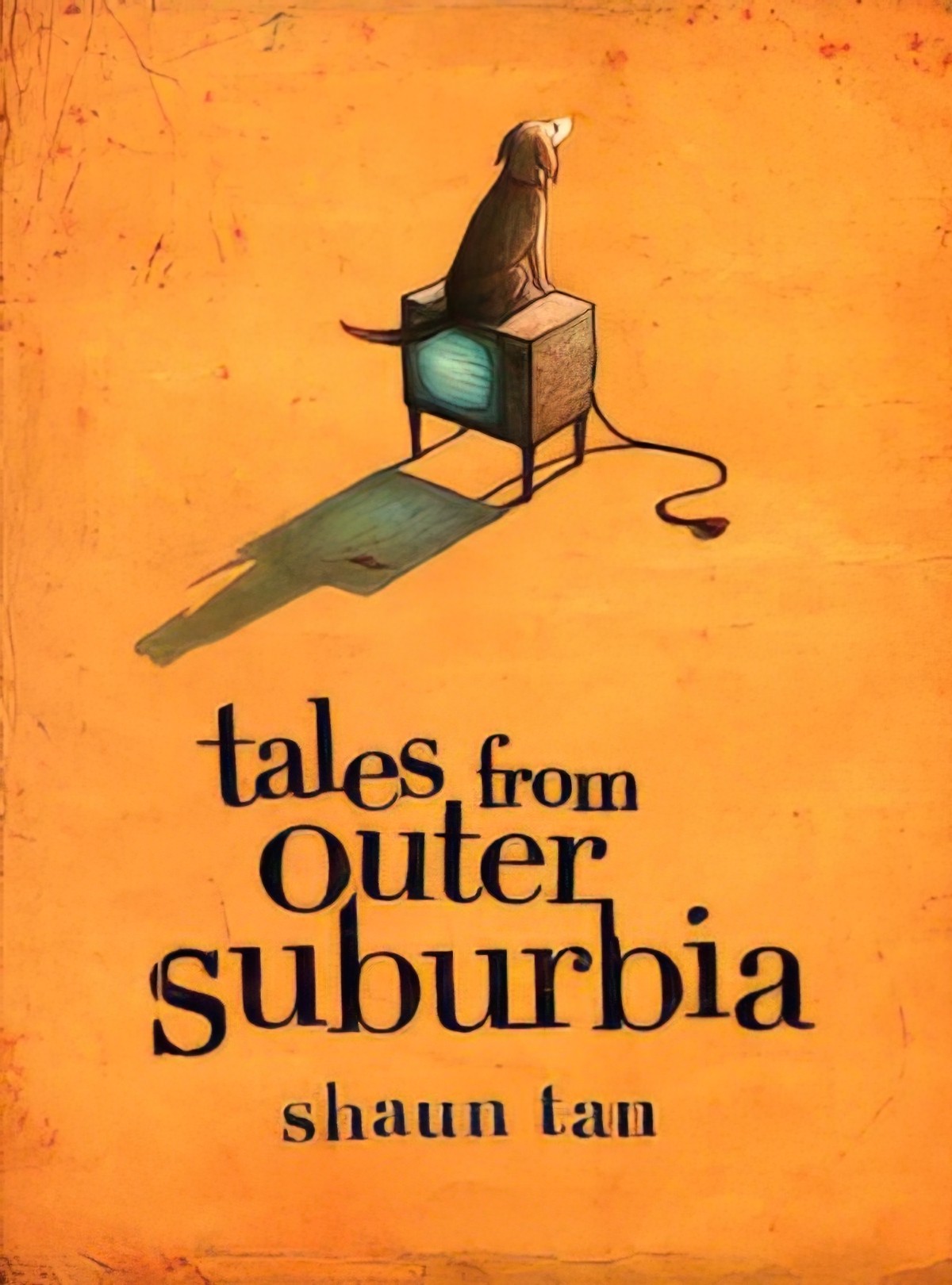
The common thread between stories in this compendium: All stories are set in the same, off-kilter suburb. Some of the stories have no words, and might consist only of a single frame of narrative art. Creative Arts teachers find this really useful in the classroom.
-
The Canary by Katherine Mansfield Short Story Analysis
“The Canary” is a short story by Katherine Mansfield, and the last she ever finished. It was published in April 1923, after she had already died. “The Canary” was then collected in A Dove’s Nest.
-
Tristan and Isolde: Passionate vs Spiritual Love
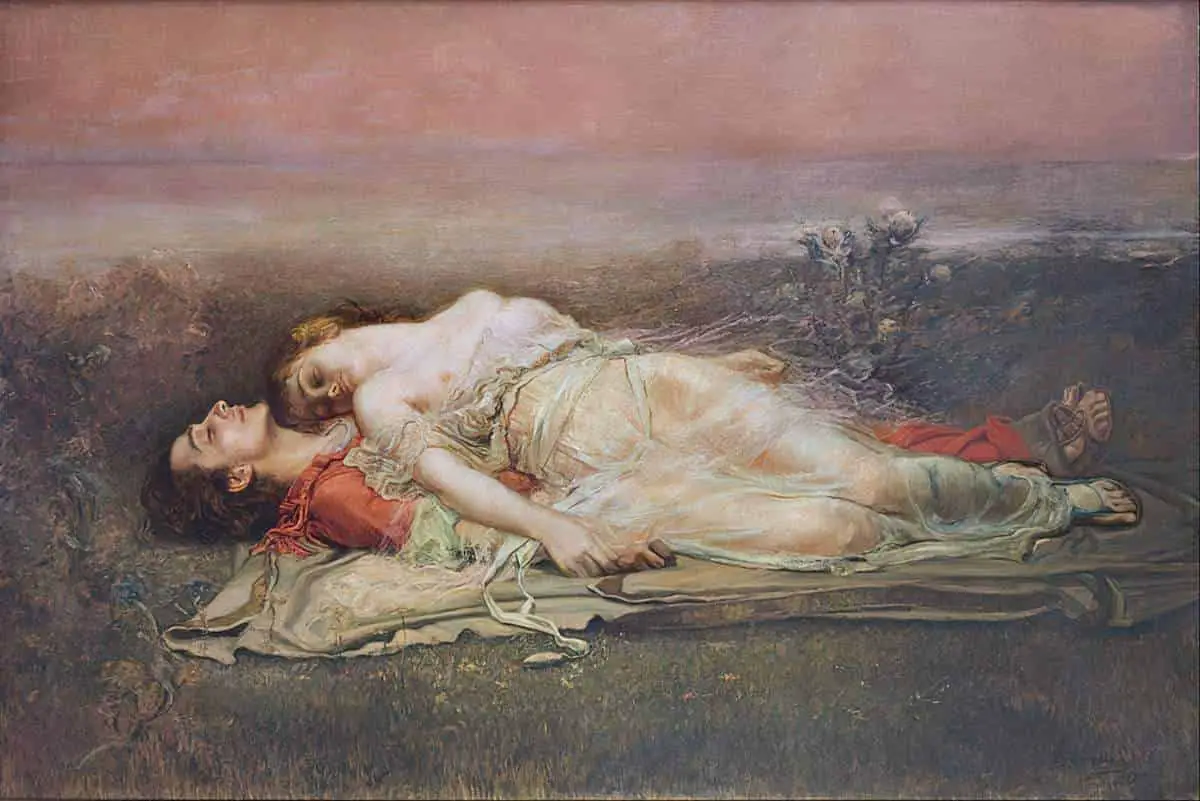
Today we think of love in binaries such as love versus lust, but go back a few centuries and the binary was thought of a little differently: Passionate vs. Spiritual.
-
What is Realism in Literature?
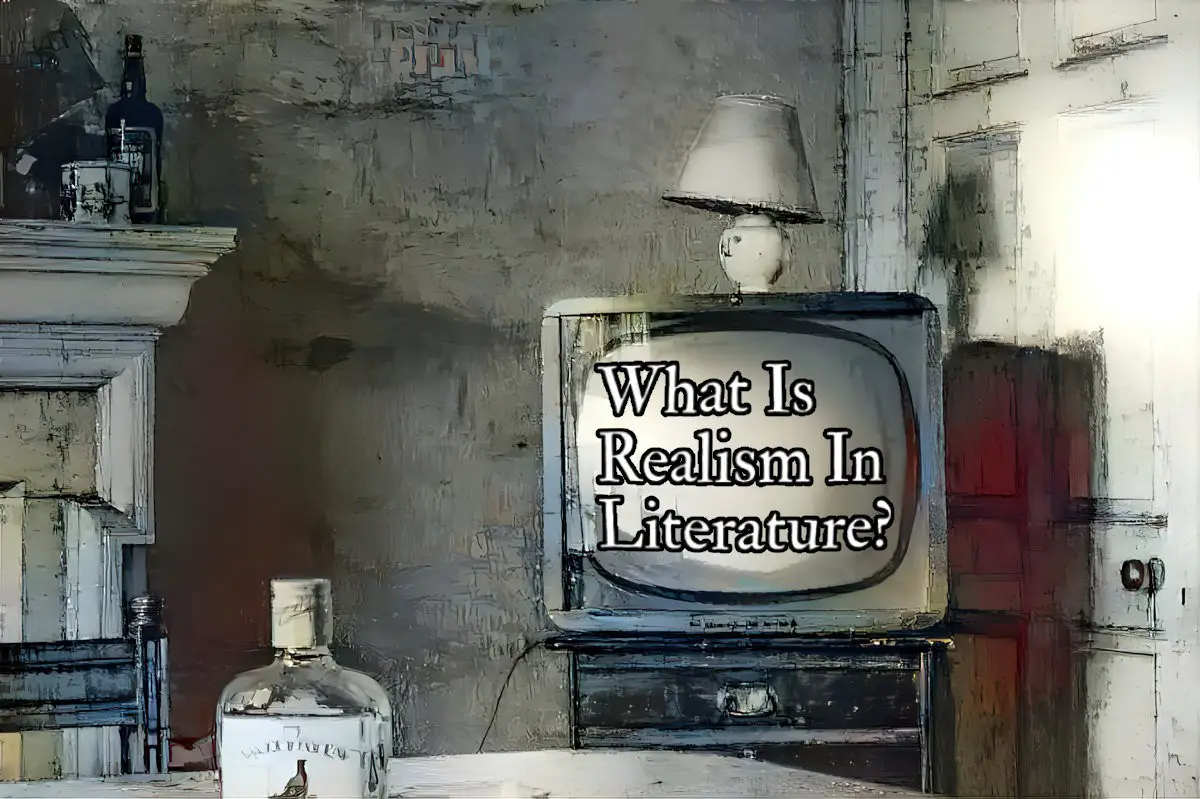
There is a spectrum of how real-world a story feels. Realism is a widely misunderstood term even within literary studies today. The terms are used differently depending on location. They’re also heavily classed and slightly gendered to boot. Humanities scholars spend a lot of time arguing about the meaning of realism.
-
Amatonormativity and Storytelling
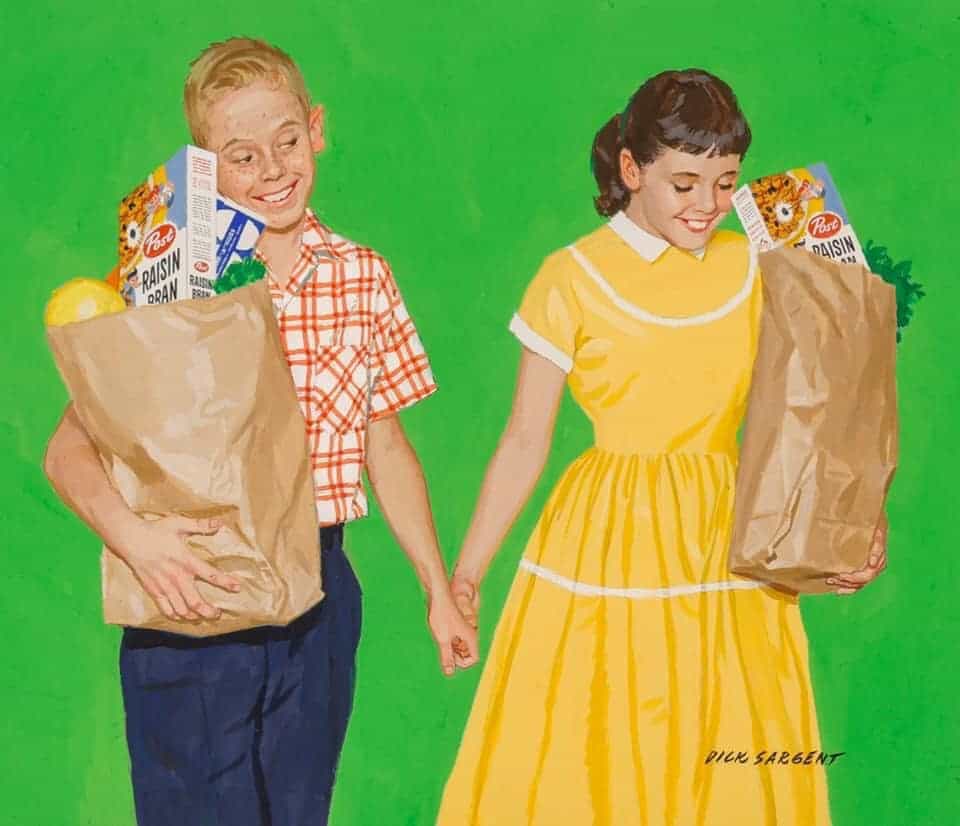
The word amatonormativity was coined by Elisabeth Brake in her book Minimizing Marriage: Marriage, Morality, and the Law (2011). Amatonormativity describes the societal assumption that everyone must seek romantic, sexual, monogamous relationships before finding happiness and fulfilment. Elizabeth Brake calls this undeserved elevation and centrality of romantic love amatonormativity, from the Latin word for love,…
-
U.F.O. In Kushiro by Haruki Murakami Short Story Analysis
“U.F.O. in Kushiro” is a short story written by popular contemporary Japanese author Haruki Murakami. English readers first had access to the story in 2001, when it appeared in an issue of the New Yorker magazine. The story was republished in 2011 after an earthquake and tsunami devastated northern Japan. Safe to say this is considered…
-
Defamiliarisation and the Estrangement Effect in Literature
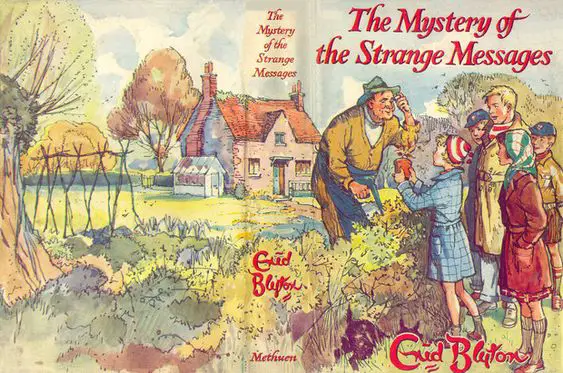
If writing novels—and reading them—have any redeeming social value, it’s probably that they force you to imagine what it’s like to be somebody else. Margaret Atwood, Second Words Strangeness is a necessary ingredient in beauty. Charles Baudelaire Don’t Forget How Strange This All Is from Raptitude WHAT IS DEFAMILIARISATION? [Defamiliarisation is] taking something and trying…
